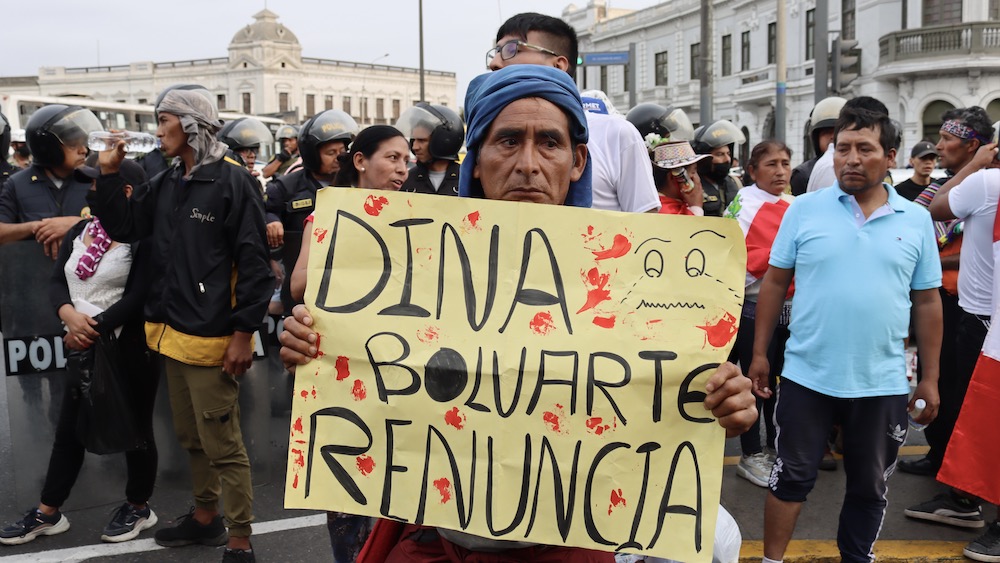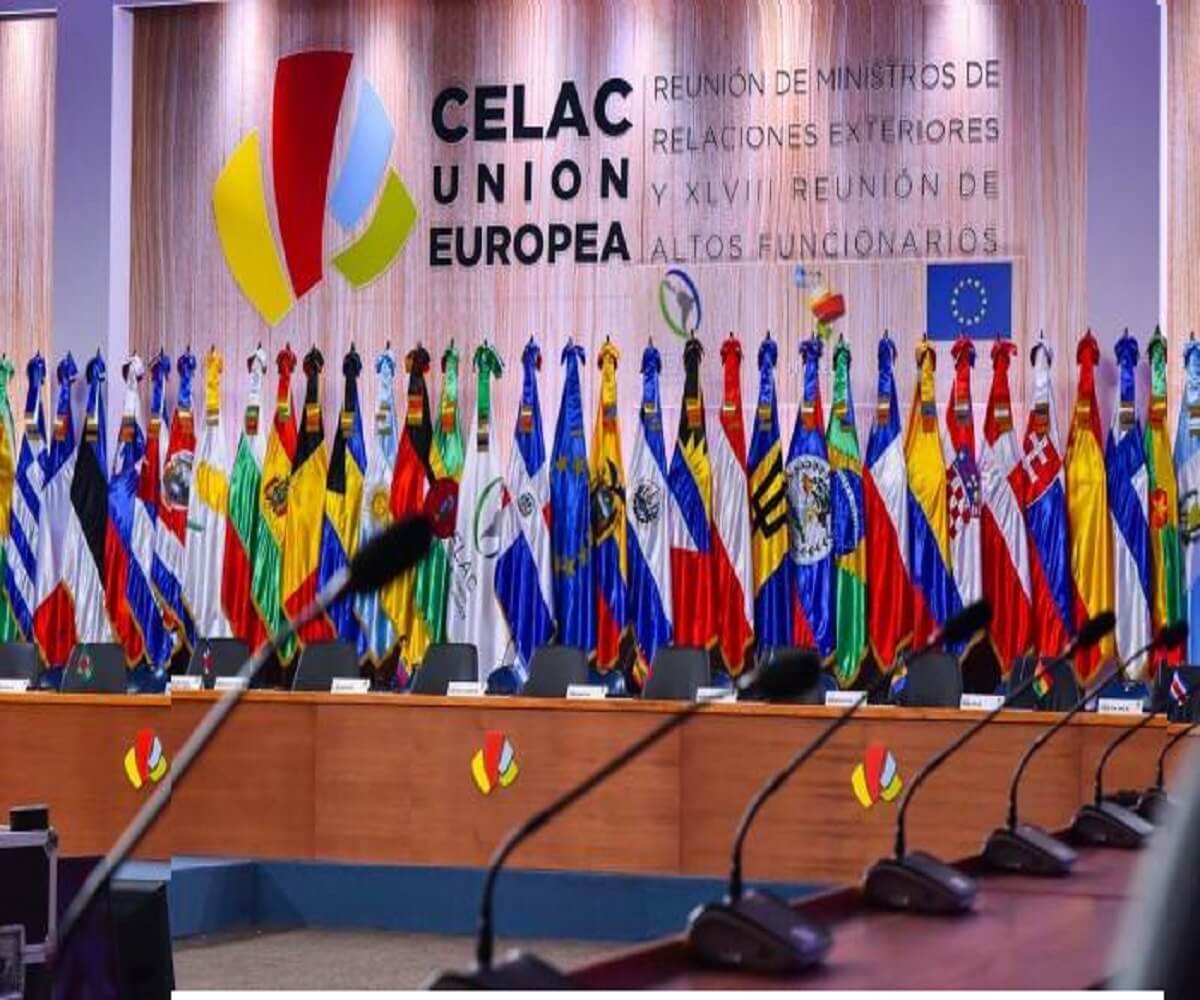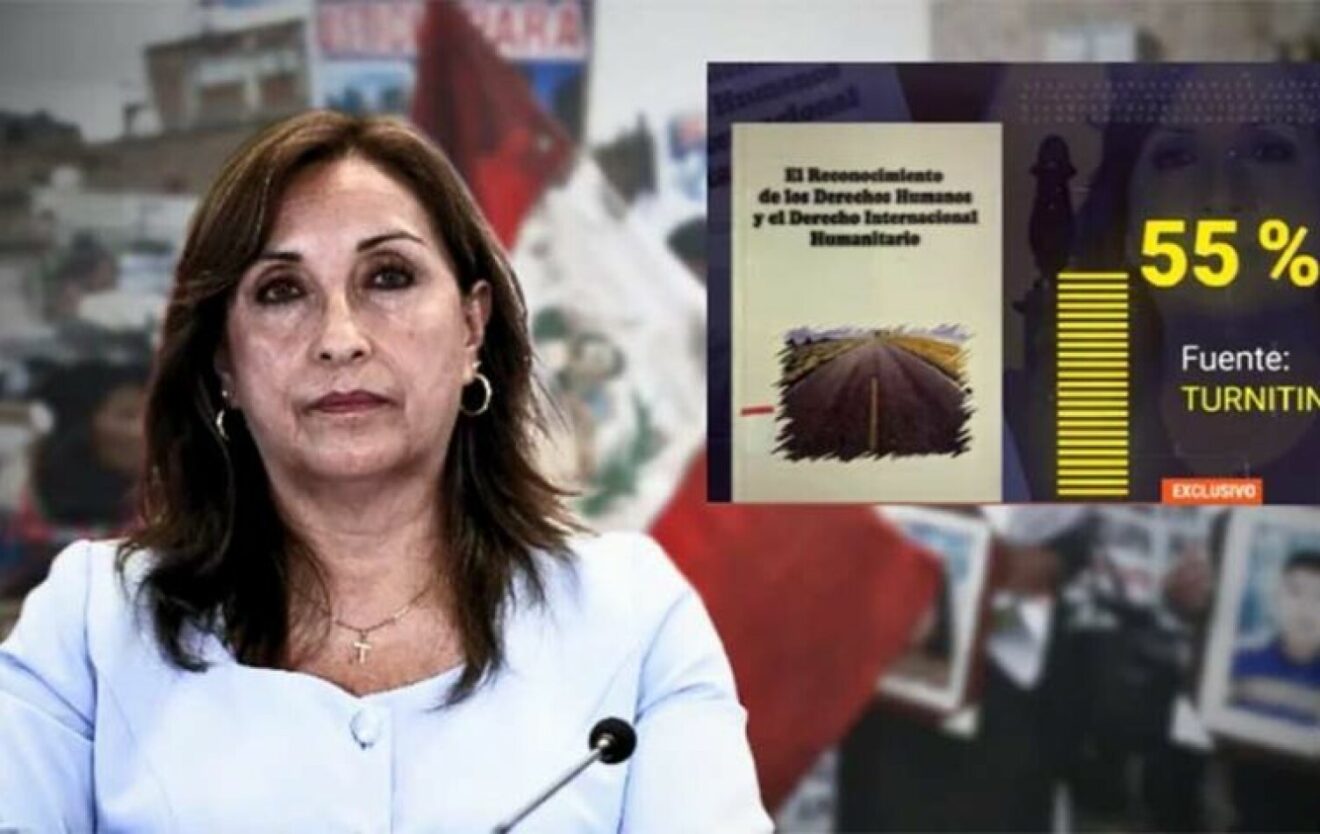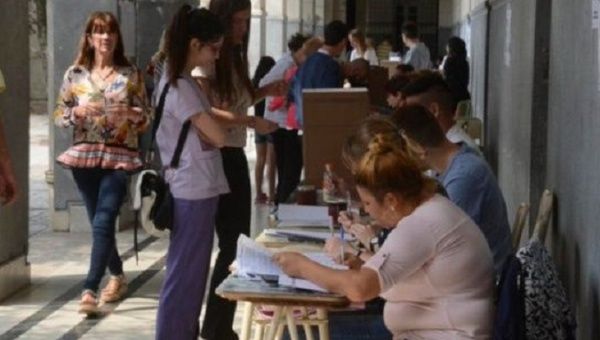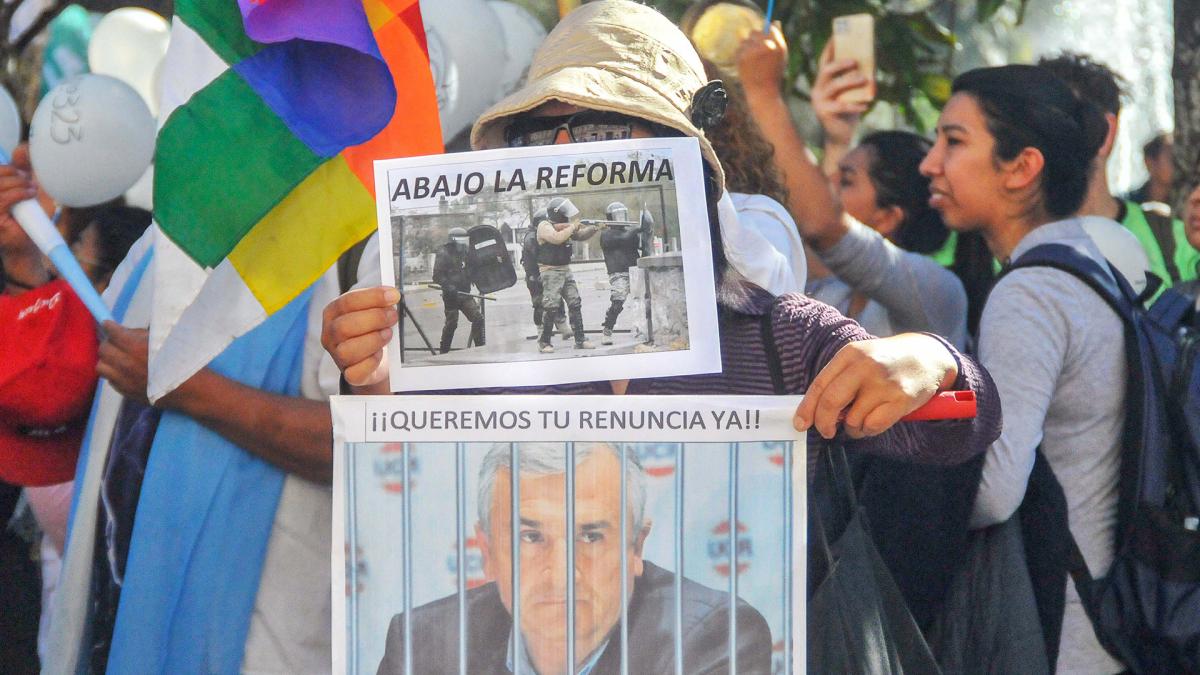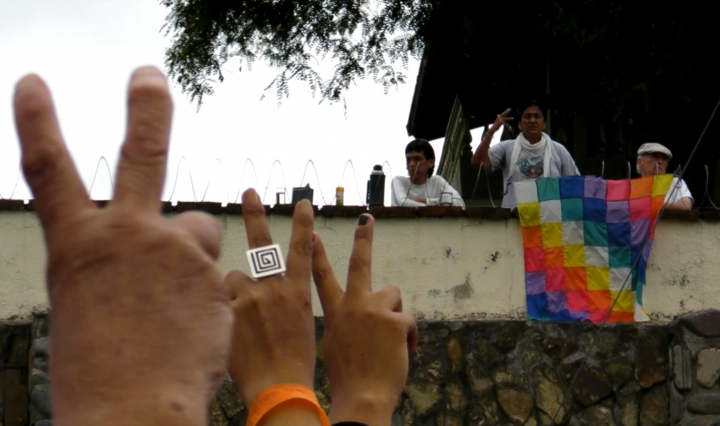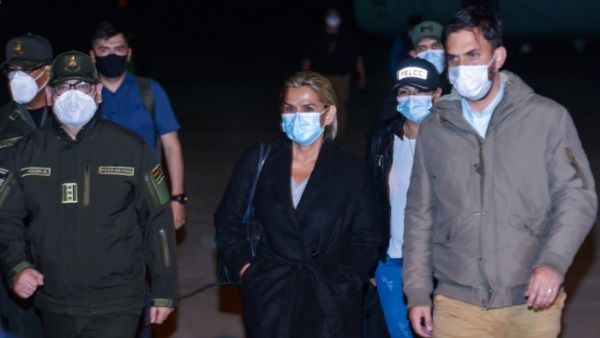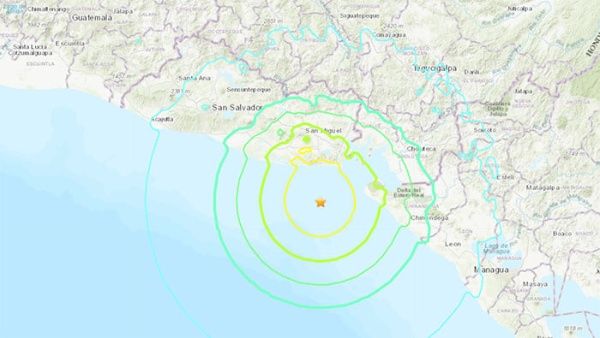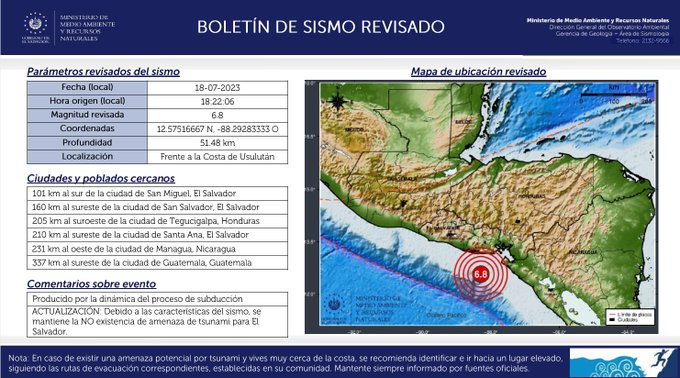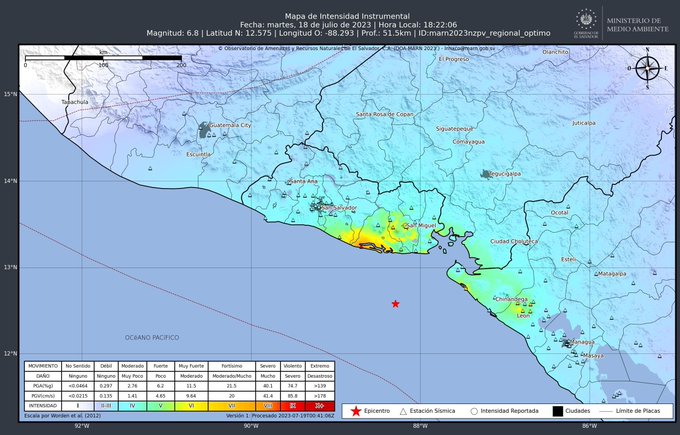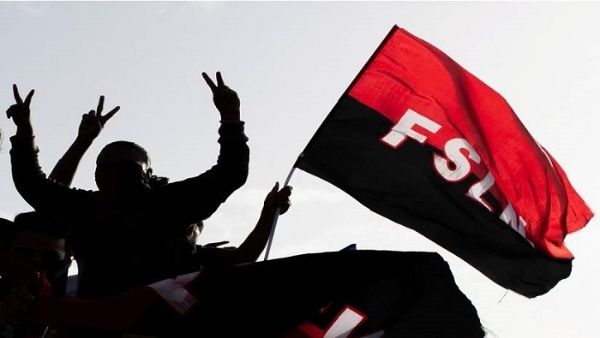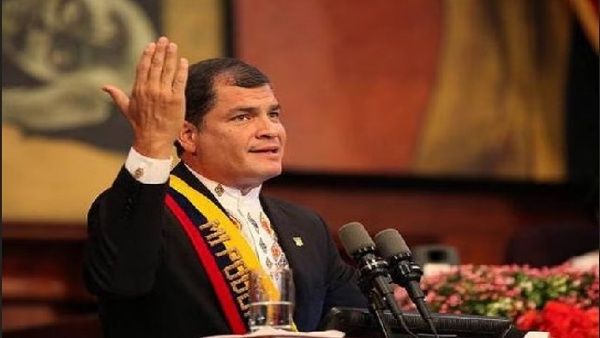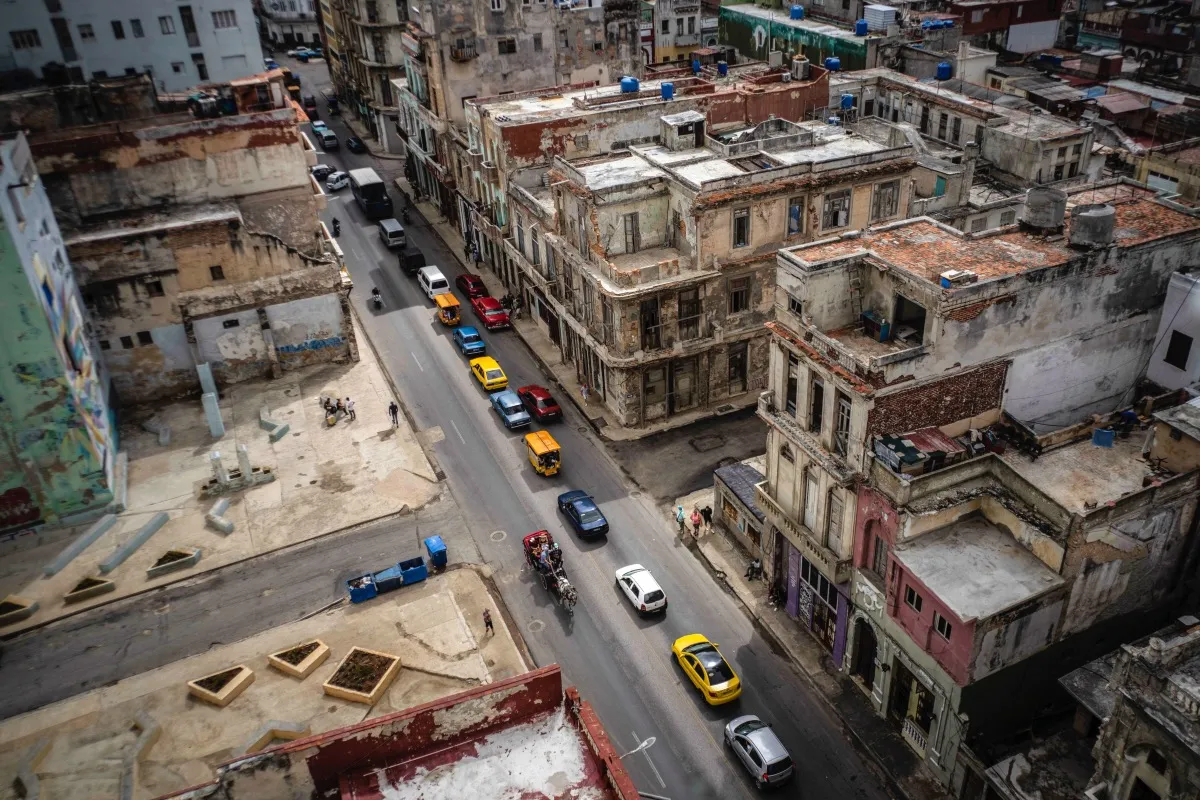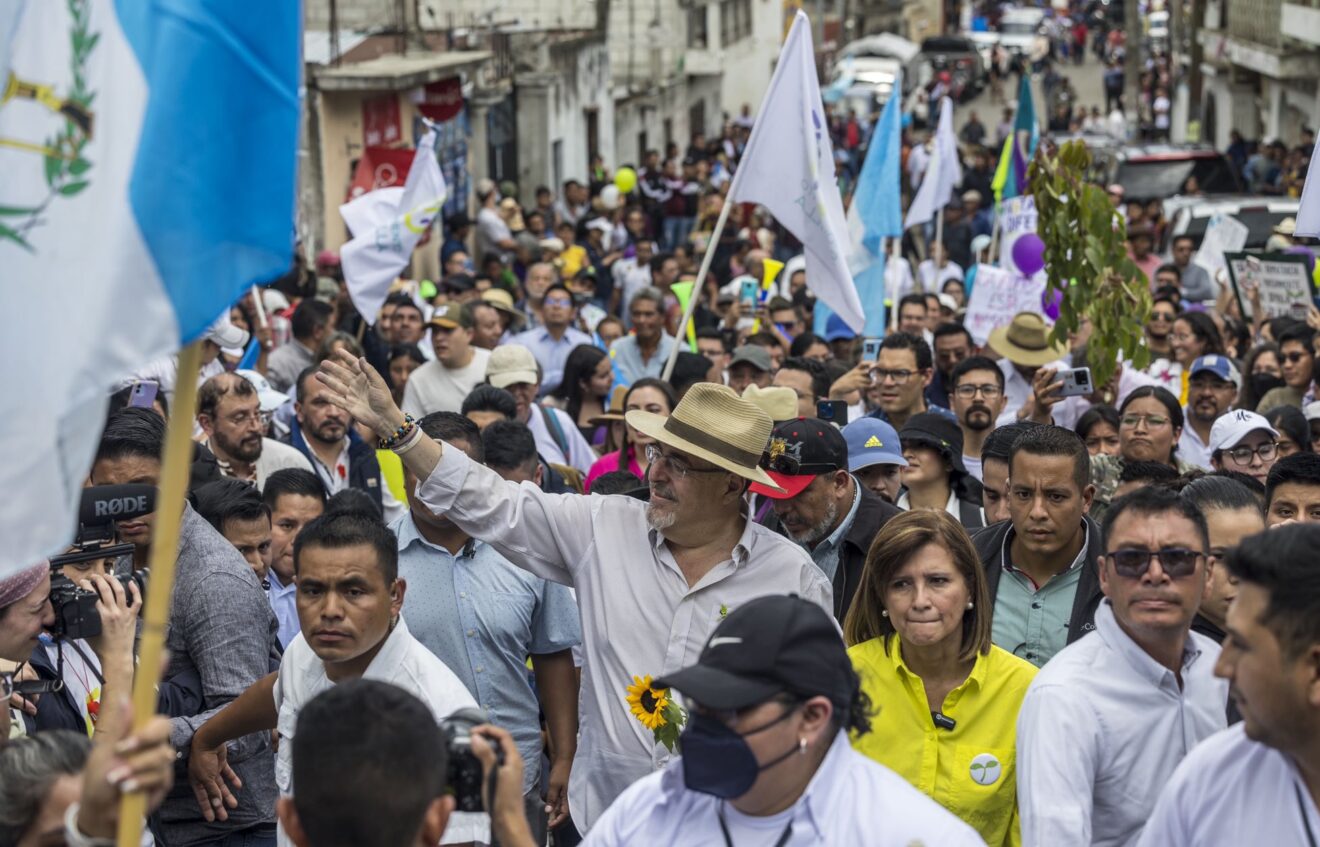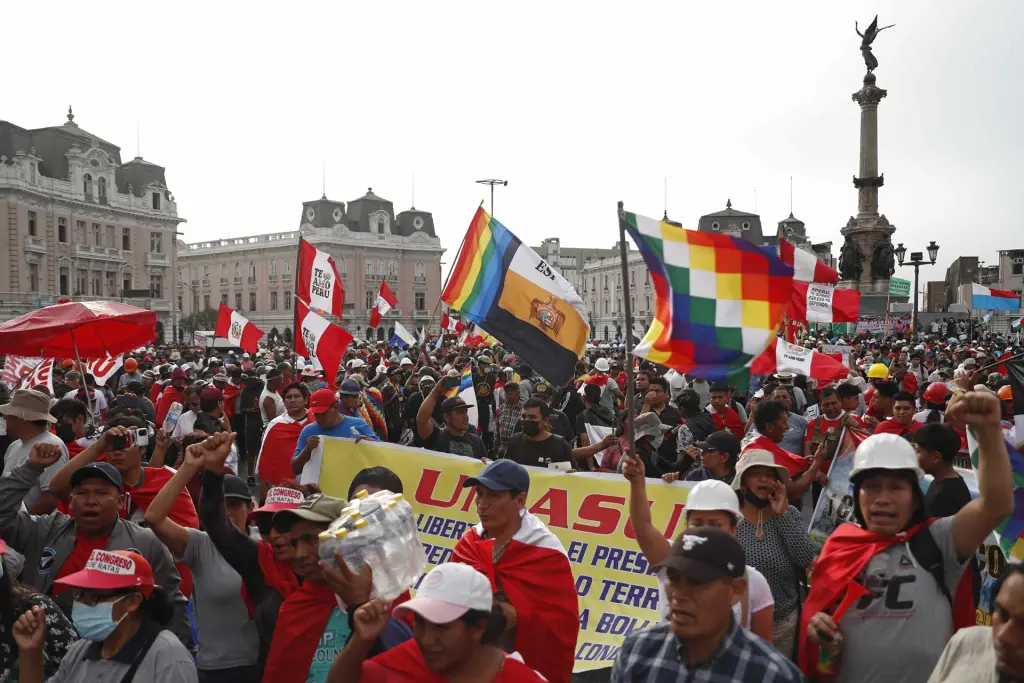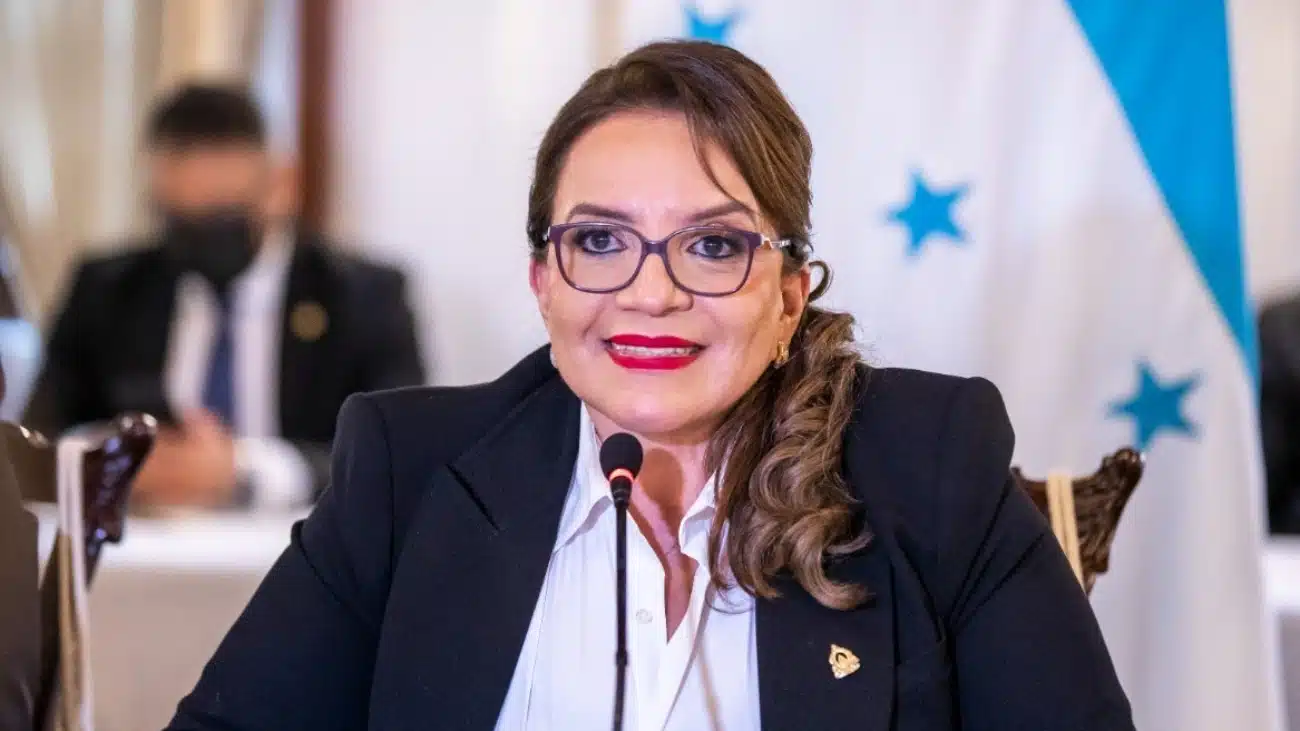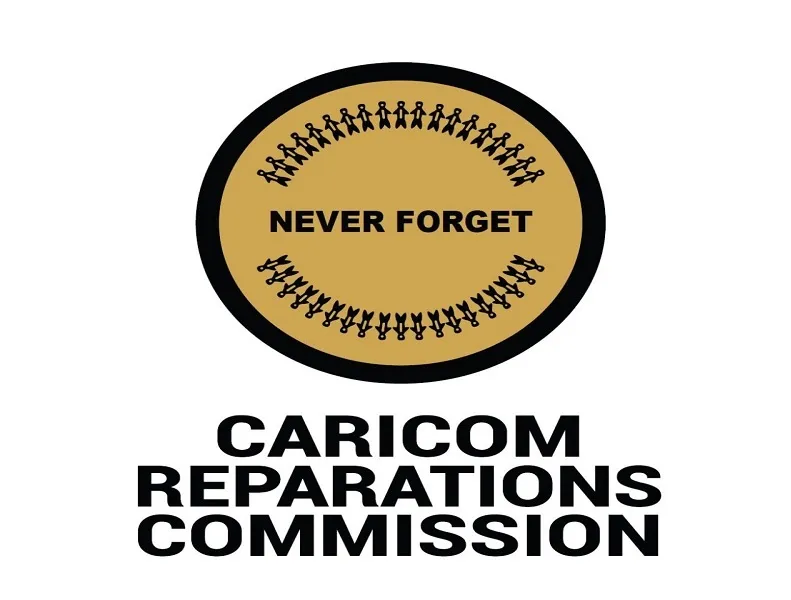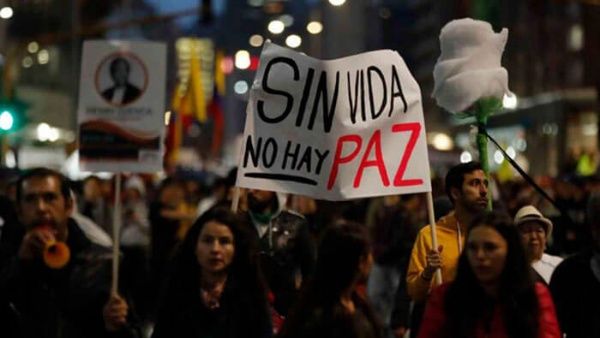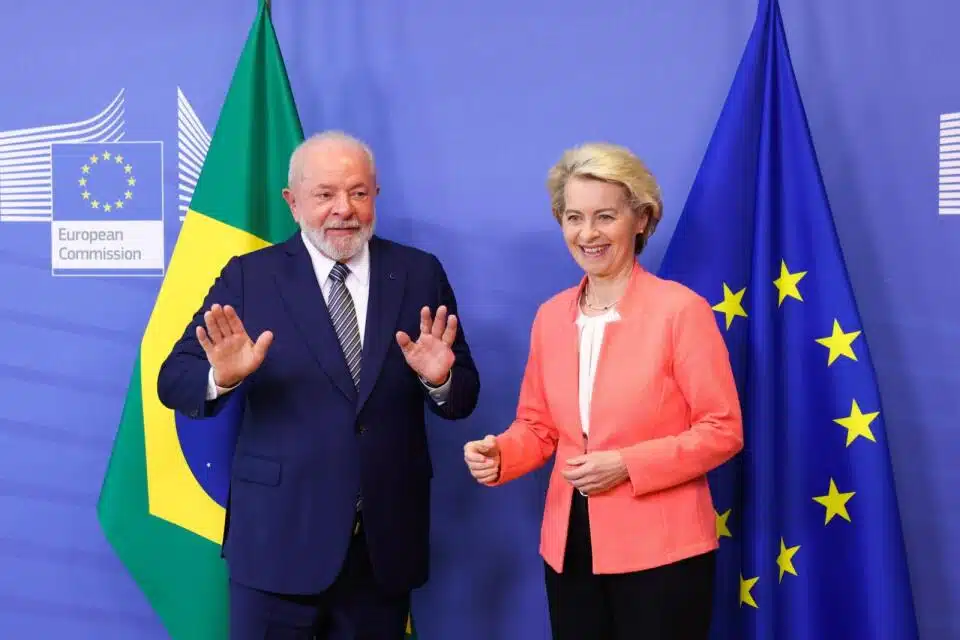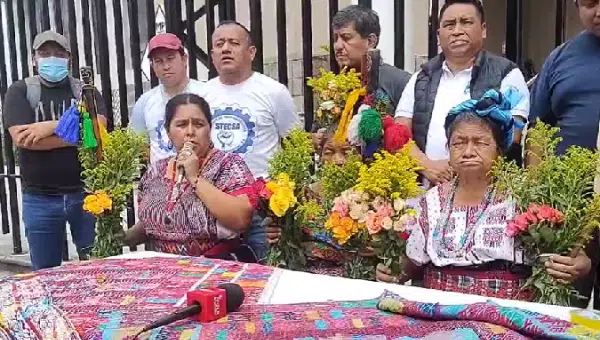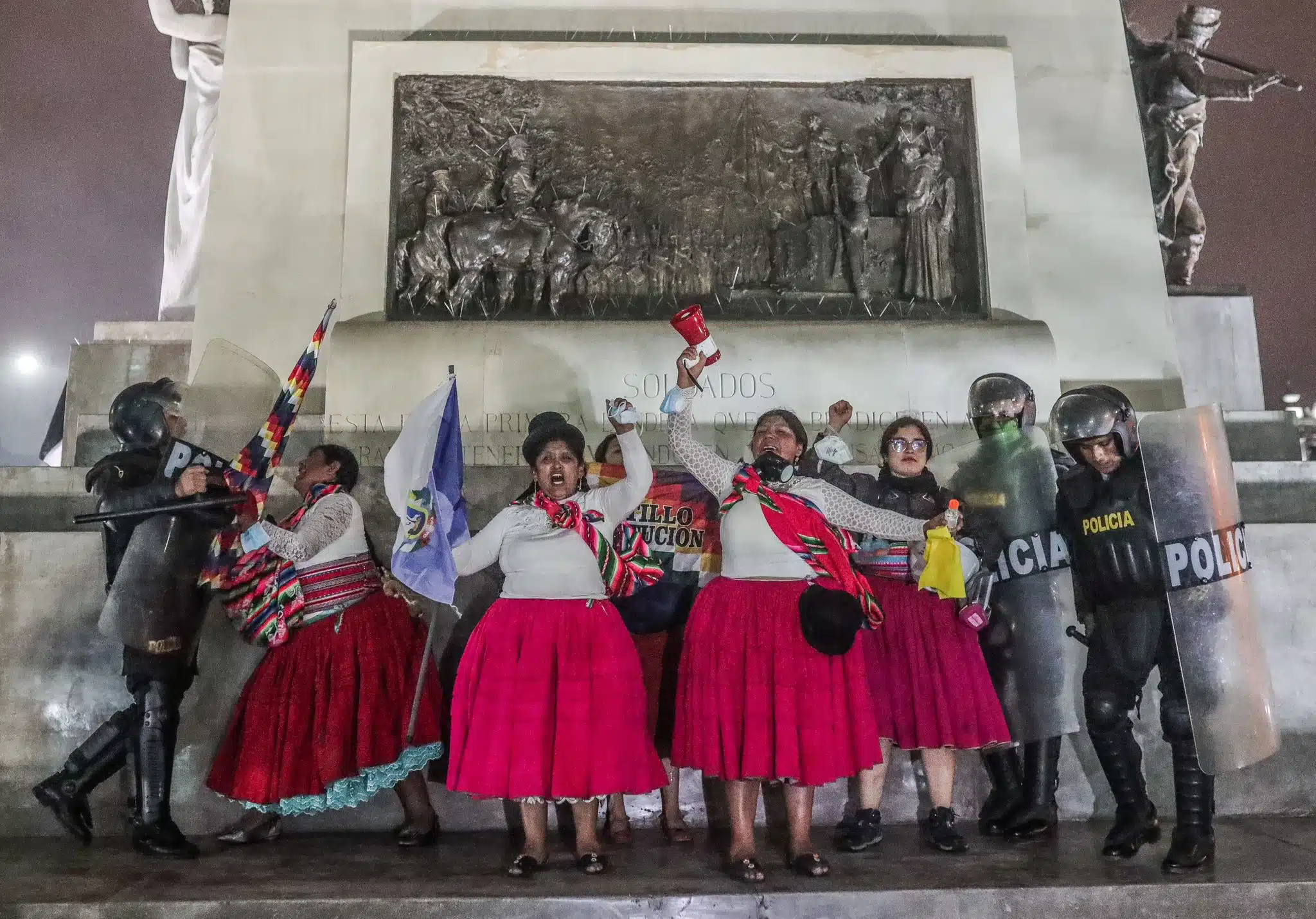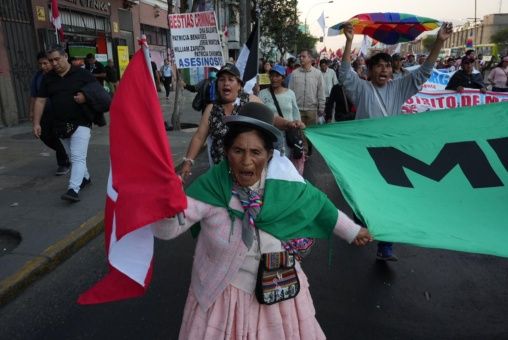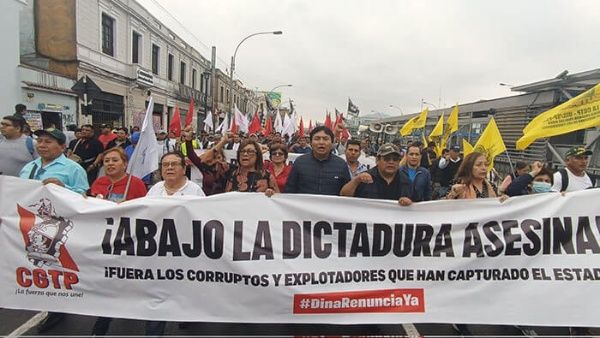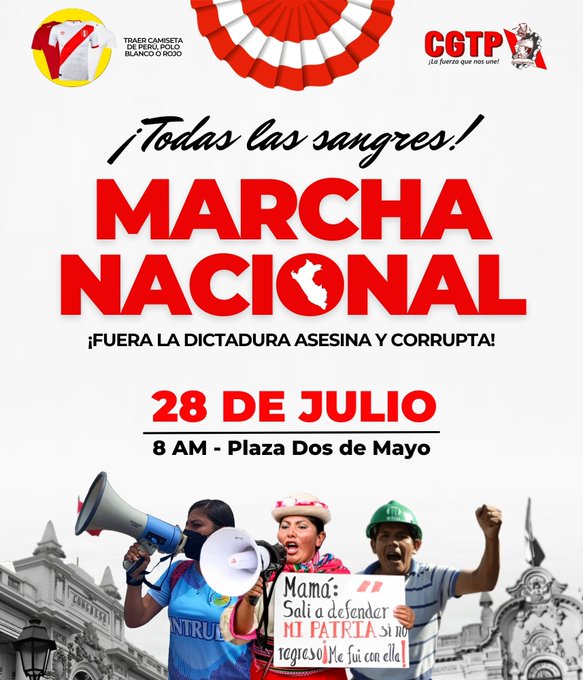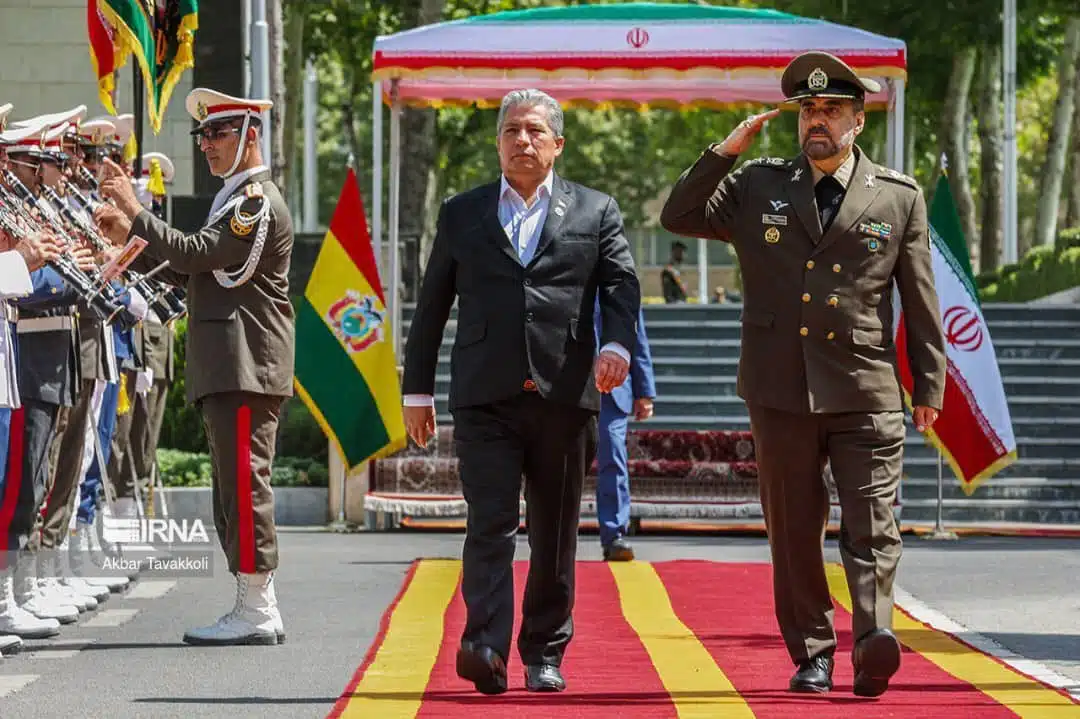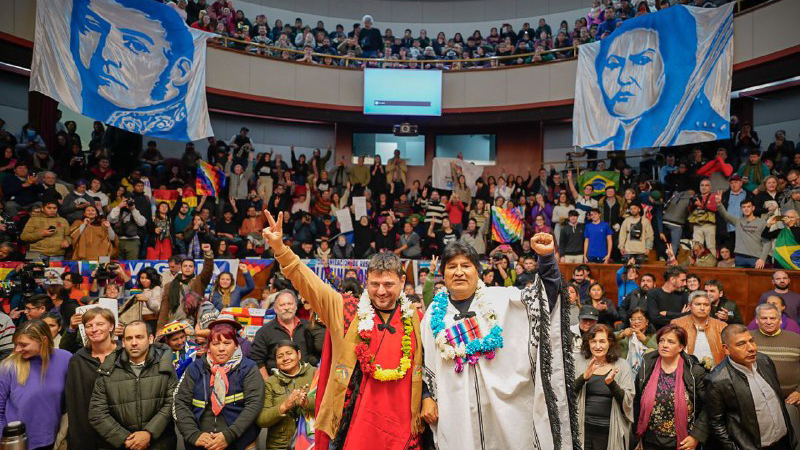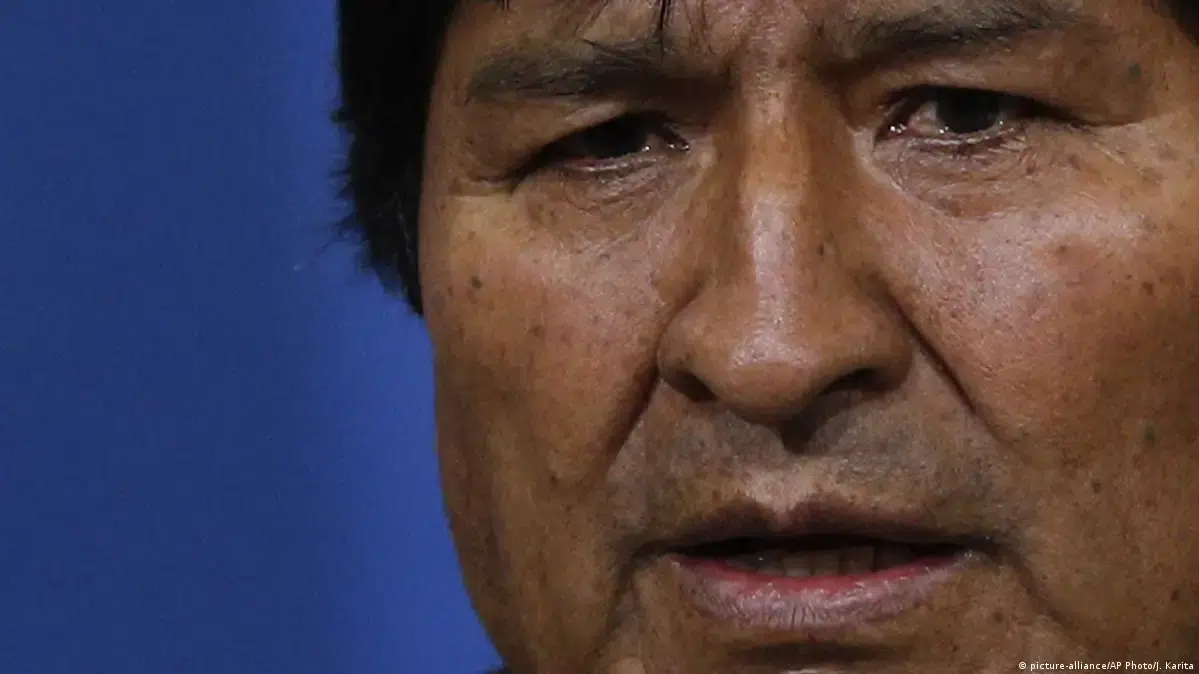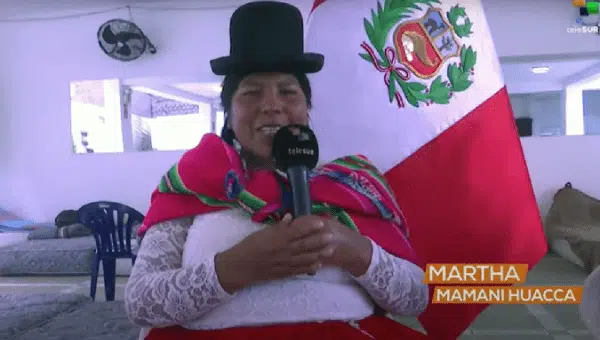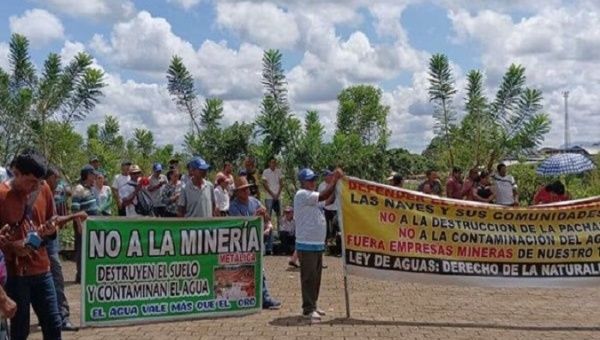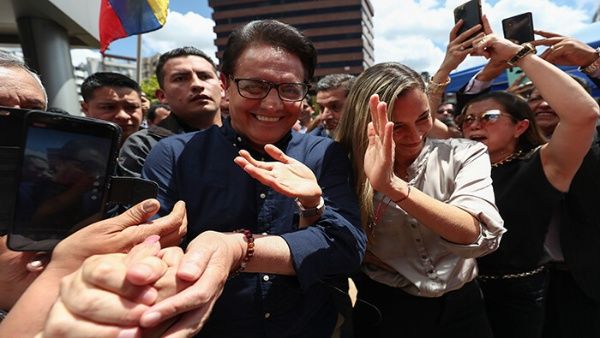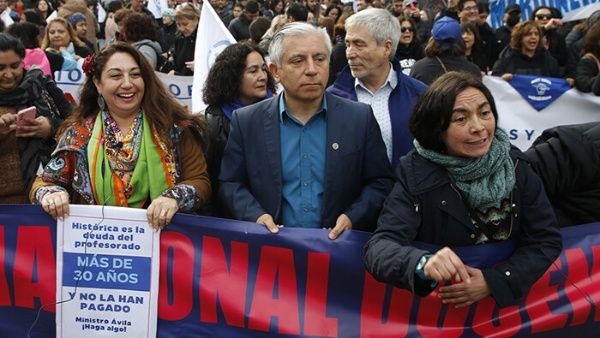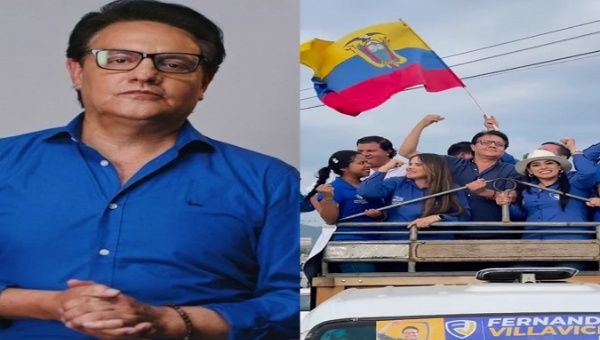JULY 6, 2023

Luisa González and Andrés Arauz, the Citizen Revolution Movement candidates for the upcoming Ecuadorian elections. Photo: Alberto Zambrano/EFE/File photo.
Ecuador’s presidential candidate for the Citizen Revolution (RC) movement, Luisa González, continues to lead the polls as of this Tuesday, July 4, ahead of the early elections scheduled for August 20.
According to the polling firm Negocios y Estrategias, led by public opinion researcher Iván Sierra, the initial indications are positive for the RC candidate, with 41% of the voting intention in her favor.
The study was carried out between June 22 and 26 across the eight provinces in the state with the largest populations—on the coast, the highlands, and the east of the Andean country—equivalent to 70% of the electoral roll.
According to the survey, candidates Otto Sonnenholzner (11%) and Yaku Pérez (10%) are vying for second place in voter support.
However, the survey reflected that 38% of the sample displayed indecision, representing both a challenge and an opportunity for all candidates, according to Sierra.
Likewise, the survey further detailed that Sonnenholzner and Pérez are two of the most well known candidates, although González has the best ratio between positive and negative opinions.
Negocios y Estrategias has been conducting public opinion and market research in Ecuador, and ten other countries in the Latin American and Caribbean region, for over 26 years.
The RC movement—created by former President Rafael Correa—has recently been shown to have increasing popular support in the provincial and municipal elections held on February 5, in which its candidates won the most important prefectures and mayors’ offices in the country.
González has announced that public investment and returning security to the population of this South American nation are among the main objectives of her government program. A number of analysts suggest that the RC movement is the political force that currently holds the greatest winning chance for these elections.
https://orinocotribune.com/correismo-co ... ors-polls/
Null and Blank Votes Lead to Runoff Elections in Guatemala
JUNE 26, 2023

A polling box being sealed with a sticker from the Guatemalan Supreme Electoral Tribunal sticker that reads "General Elections 2023." Photo: CNN.
Caracas (OrinocoTribune.com)—Guatemala’s 2023 general elections commenced on Sunday as the Supreme Electoral Tribunal (TSE) inaugurated the electoral process with a ceremony held at the Colegio Salesiano Don Bosco. The official opening ceremony featured a symbolic ribbon-cutting, marking the start of the electoral day to select the new president in the first round. With this act, the Guatemalan authorities have formally initiated the voting process.
Approximately 9.3 million Guatemalans have been summoned to partake in the upcoming elections to select candidates for the positions of president, vice president, and 160 congressional deputies. Additionally, 20 representatives for the Central American Parliament and 340 mayors will also be elected.
It is worth noting that the current right-wing and conservative president of Guatemala, Alejandro Giammattei, was elected in a runoff election held on August 11, 2019, where 61.41%. of voters did not participate. If no presidential candidate secures an absolute majority of votes in the first round of elections on June 25, another runoff election will take place on August 20, 2023.
The electoral campaign was marked by controversial judicial decisions made by the TSE and the Constitutional Court, in which three of the favorite candidates and opponents of the incumbent government of Giammattei were eliminated from the presidential race, as reported by HispanTV.
The magistrates of the TSE made the decision to disqualify Thelma Cabrera, an indigenous leader; Roberto Arzú García Granados, the son of former president Álvaro Arzú Irigoyen; and Carlos Pineda, a prominent businessman who was leading in the presidential election polls.
As the country headed into elections, Latinobarómetro reported that 65% of Guatemalans expressed a lack of trust in the country’s democratic process. Recent surveys published in the media revealed that no candidate managed to secure more than 20% of voting intentions.
Corruption and abstentionism
According to Manfredo Marroquín, an activist representing Acción Ciudadana, there is an anticipation of increased abstentionism in the upcoming elections. This sentiment arises from the prevailing belief among the majority of the population that elections fail to bring about substantial change for the country.
The former presidential candidate of the center-left party Encuentro por Guatemala, reflecting on the upcoming elections, conveyed a sense of disillusionment and lack of enthusiasm among the citizenry. According to the average citizen, the elections seem destined to perpetuate the status quo, leading to a significant portion of the population abstaining from voting. The candidate further anticipated a rising percentage of null votes, as the elections fail to generate any meaningful expectations or hopes for the people.
Marroquín highlights that the current situation in Guatemala raises numerous concerns regarding the credibility of the electoral process. Astonishingly, only 15% of the population believes that the voting will be conducted in a transparent manner. He shed light on the distressing reality, stating that “most, if not all, of the institutions have fallen into the hands of the so-called Pact of the Corrupt. Their objective is to protect themselves from any form of investigation.”
The analyst, in referencing the “Pact of the Corrupt,” is referring to the alliance that exists between politicians, businesspeople, and members of organized crime groups that were exposed by investigations conducted by the defunct International Commission against Impunity in Guatemala (CICIG), which was dissolved in 2019 by former President Jimmy Morales (2016-2020).
Irregularities denounced
The magistrates of Guatemala’s TSE provided insights on the ongoing general elections in the country. They confirmed that, as of 2:00 p.m. (local time) on Sunday, a total of 96 complaints regarding irregularities had been officially registered with the Public Prosecutor’s Office, as reported by Telesur.
According to Magistrate Irma Palencia, by 3:00 p.m. they were aware of five incidents, three of which had been resolved. She explained that these are isolated events and do not tarnish the electoral process.
She noted that, up until that point, there had been significant voter turnout, which she viewed as a positive development. However, due to the complicated nature of the nation’s electoral process, she was unable to provide a precise count of the number of voters. Nevertheless, she encouraged the electorate to make the most of the remaining hours available to cast their votes.
Magistrate Palencia and Magistrate Gabriel Aguilera officially announced the suspension of elections in the municipality of San José del Golfo due to force majeure and the need to safeguard the safety and well-being of all involved. Disturbances have persisted in this municipality since Saturday, and officers from the Guatemalan National Civil Police have resorted to tear gas, hindering the commencement of voting.
The altercations began with the arrival of election personnel who were forced out on buses by a large group of people who sprayed them with gasoline and threatened to set them on fire.
In response to a complaint lodged by the Commitment, Renewal, and Order Party (CREO) in the municipality of San Miguel Petapa, Magistrate Aguilera clarified that the party must formally submit the appropriate paperwork. Once the election day concludes, the TSE will then assess and address the matter accordingly.
Another incident was also confirmed in San Martin Zapotitlán, Retalhuleu, where a group of people destroyed election materials. Magistrate Rafael Rojas said that the municipal electoral board decided to protect the security of voters, electoral material, and facilities in response to the incident.
Furthermore, he reported that a number of individuals have been detained, and the authorities are actively investigating the incidents. The specific actions to be taken will be determined by the TSE. President Alejandro Giammattei, while exercising his right to vote, disclosed that 195 people have been arrested thus far for engaging in irregularities.
Voicing her strong opposition, the social democrat candidate Sandra Torres denounced the alleged vote-buying by the government in the Guatemalan elections. Torres, who currently leads the polls of voting intentions, expressed her concerns, stating that “the official party is not allowed to offer gifts or purchase votes. We have received complaints regarding vote-buying through the distribution of food.” Surrounded by reporters, the former first lady emphasized these concerns at the Valle Verde School in Guatemala City.
Torres is confident about making it to the second round of elections, having secured the top position in the polls with 21.3% of the voting intention, according to a study conducted by the firm ProDatos and published this week in the local newspaper Prensa Libre.

24% of votes either null or blank
At 10:18 p.m. (local time) Prensa Libre reported that with 21% of the votes counted, Sandra Torres was leading with 14.7% (154,002 votes) closely followed by Bernardo Arevalo from the Movimiento Semilla party with 12.93% (138,903 votes).
The more striking result presented by the Guatemalan newspaper with TSE data was that 23.97% of the votes were either null or blank, with 17.03% and 6.94% respectively. These figures confirm what many analysts stated about the disdain of the Guatemalan people towards their democracy, as they do not see that it represents their needs or aspirations.
Based on this preliminary report, it is indicated that a runoff election will occur on August 20, in accordance with Guatemalan electoral rules. This is due to the fact that none of the candidates appears to have garnered the required 50% of votes to secure victory in the first round.
Orinoco Tribune Special by staff
https://orinocotribune.com/null-and-bla ... guatemala/
"Null and blank" would be a considerable improvement over what goes on here.
**********
Democracy in Check: The Crisis of MAS in Bolivia
Posted by INTERNATIONALIST 360° on JULY 6, 2023
Ana Laura Dagorret
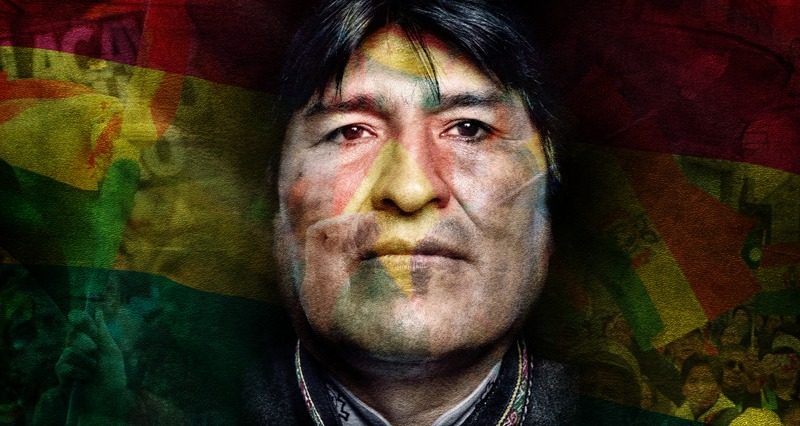
The Movement Towards Socialism in Bolivia (MAS) is going through its final crisis. The rupture has left two well defined sides: On one side, the current president Luis Arce leads the “renovation” of the party. The other side’s leader is the former president and founder of MAS, Evo Morales, who is in an irreconcilable crusade with Arce himself.
What was already palpable from the crossed declarations of both leaders, in the last days was consolidated with a decision of Arce. The sector represented by Evo approved in Congress a motion of censure against the Minister of Government, Eduardo Del Castillo, a key figure for President Arce. For this, the congressional sector that responds to Evo voted together with the opposition blocks of Comunidad Ciudadana, of Carlos Mesa and Creemos, of Luis Fernando Camacho, both protagonists in the coup d’état against Evo in 2019.
After the legislative procedure, President Arce reappointed Del Castillo to the position, which was considered a clear challenge to Morales. In the same act of appointment, Arce mentioned that “we have listened to the Bolivian people, we have said it and it is not only a mention, not only the organizations that are present here, but through our Vice-Ministry of Coordination with Social Movements, we have been in contact with many organizations, which have overwhelmingly and forcefully supported Eduardo Del Castillo”.
Minister Del Castillo also took the floor and stressed that “today, like it or not, the leader of the revolution is President Luis Arce and he is complying”.
After the new appointment, Evo expressed his criticism via Twitter: “Let the worthy Bolivian people judge. I hold the censured and unconstitutionally and illegitimately ratified minister responsible for any attempt against my life or physical integrity”.
May the worthy Bolivian people judge. I hold the censured and unconstitutionally and illegitimately ratified minister responsible for any attempt against my life or physical integrity. The MAS-IPSP militancy is witness of the threats, lies and attacks against us.
The only thing missing is for Del Castillo to show his handcuffs as Arturo Murillo did. The MAS-IPSP will never give up in its fight against corruption and protection of drug trafficking. As in neoliberal times, the right wing seeks to attack the political instrument of the people.
The crisis that MAS is going through is confusing if one takes into account the economic present of the Plurinational Republic of Bolivia. In 2022, it had a growth of around 4%, a percentage that could have been higher, but was “slowed down” by the 36-day strike in Santa Cruz (the country’s economic engine) and by climatic phenomena that affected production.
Inflation rates also show a stable outlook: 3.28%, as established in the Fiscal-Financial Program 2023, as a result of the fuel subsidy policy implemented since 1997. Faced with a situation of rising prices that has spread internationally, one of the campaigns promoted by the Bolivian government was the comparison with the economic reality of other countries, where inflation was generalized in the face of the war in Eastern Europe.
Some analysts point out that the crisis within the party is caused by the personal aspirations and the apparent continuity of the power project of former president Evo Morales, as well as those sectors that support him. Investigations regarding the coup suffered by Morales in 2019 confirm that there was no electoral fraud, which would give legitimacy to Evo’s victory for another five-year term. As the latter was not consolidated due to the coup d’état articulated by the Organization of American States (OAS) with the Bolivian right wing, the former president insists on regaining prominence for 2025.
For the former Bolivian vice-president Álvaro García Linera, the incentive to internal division constitutes a “political suicide”. Linera even said in an interview that “there are differences that are getting bigger and bigger, because there are disqualified people who speak in the name of the leaders and this is bleeding our process”.
Far from contemplating the warnings and supporting unity, Evo Morales went so far as to make public his enmity with Linera, whom he described as a traitor, saying that the latter disqualified him because of his indigenous condition. In his statements, Morales did not mention the fact that Linera had stressed the need for the next Bolivian president to be of indigenous origin.
Some analysts warn that the MAS crisis is being encouraged from outside. As it happened in Ecuador in the last elections, it is speculated that there may be agents operating to foster the division in the party, mainly within the indigenist movement, in order to build a strong opposition to Arce.
If at some point someone speculated with the possibility of an alliance of this sector of the MAS with right wing parties to consolidate the defeat of the current president, the analysis was not wrong. In this opportunity in which the Minister of Government was censured, the part of the MAS aligned with Evo allied with the right wing who was directly envolved in the coup of 2019 to try to impose a defeat to Arce’s government.
If this situation deepens, something increasingly difficult to rule out due to Evo’s insistence to fuel the rupture, it is more than likely that the division will benefit the current opposition, especially U.S. imperialism, whose interest in the country is due to the wealth of its natural resources, mainly lithium. If this happens, the progress achieved during the 20 years of MAS in Bolivia will be put at risk.
https://libya360.wordpress.com/2023/07/ ... n-bolivia/
********
Ecuadorian workers reject social security reform proposal
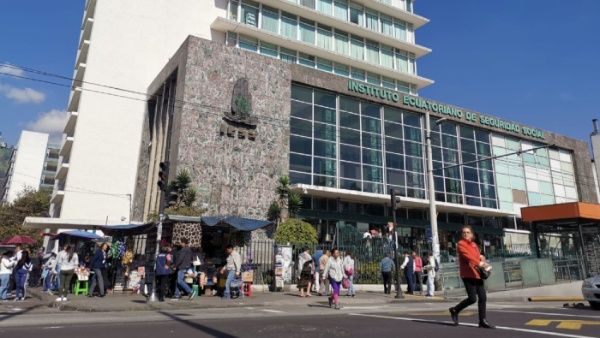
Ángel Sánchez stated that the crisis of the Ecuadorian Institute of Social Security will be resolved when the Government pays what it owes to the affiliates. | Photo: Scoops
Published 7 July 2023
The president of the National Union of Educators, Isabel Vargas, said that they will accept the right to resistance.
Workers grouped in the Unitary Front expressed their rejection of the reform proposal in the social security system promoted by the Government of the President of Ecuador, Guillermo Lasso.
The workers described the reform as “criminal” and threatened to take to the streets if it reaches the Constitutional Court, citing what happened in France as a reference.
Union leader José Villavicencio expressed his condemnation of the proposal, declaring that “it is criminal for workers and retirees. If the government dares to send this proposal through urgent economic channels and decree laws, the united front will activate the right to resistance and social protest”.
In turn, the union leader Mesías Tatamuez described the proposal as disastrous and denounced that the affiliated and retired workers were not invited to the commission created by the Government of Guillermo Lasso to propose reforms to the social security system.
Another union leader, Ángel Sánchez, stated that the crisis at the Ecuadorian Social Security Institute will be resolved when the Government pays what it owes to members.
The president of the National Union of Educators, Isabel Vargas, said that they will accept the right to resistance and stated that they will mobilize and take to the streets if President Lasso takes the proposal to the Constitutional Court.
The commission created by the Government of Guillermo Lasso raised the increase in contributions for affiliates between 30 and 35 years of age to reach retirement and that the retirement pension will be reduced since the five best salaries would no longer be calculated during lifetime contributions but up to the 25 best salaries.
The economist Pablo Dávalos declared that “the reform of the pension system is included in the commitment that Ecuador assumed with the IMF in March 2019 and reactivated in September 2020 after lending the country 6,500 million dollars. In this program of fiscal consolidation and structural reform is the privatization of what is known as the disability, old age and death fund”.
https://www.telesurtv.net/news/ecuador- ... -0003.html
Google Translator
*******
Perú: De Facto Judiciary Orders Seizure of President Castillo’s Assets
JULY 7, 2023

Police "escort" Peruvian President Pedro Castillo to the police station (December 7, 2022), Lima. Photo: AP/Renato Pajuelo.
Perú’s attorney general, Daniel Soria, made a request for the Peruvian judiciary to seize the personal and real estate assets belonging to former President Pedro Castillo, who is currently serving a double preventive detention in the Barbadillo prison, located in the province of Lima. The controversial detention of the Peruvian president is labeled as illegal by many jurists, and was the result of a parliamentary coup d’état that installed Dina Boluarte as de facto ruler.
The order was issued this Wednesday, July 5, against a number of officials—including former prime minister of Castillo’s cabinet, Aníbal Torres—and is holding the proceedings against them for the alleged crime of rebellion, in reference to Castillo’s attempt to dissolve the Congress and establish an emergency government on December 7, as provided for by Article 134 of the Peruvian constitution.
The attorney general also stated that a consultation of the assets of both investigated parties was made at the National Superintendence of Public Registries (Sunarp); from there, the list was sent to the Judiciary so that the requested precautionary measures could be executed.
Accordingly, the Attorney General’s Office (PGE) requested—in the case of President Castillo specifically—the seizure of three real estate properties in the department of Cajamarca, as well as a house in Tacabamba, in northern Perú.
The PGE further requested the seizure of a jeep vehicle and eight real estate properties in the name of Aníbal Torres; a number of which are located in a building in Los Eucaliptos street, in the Lima district of San Isidro, and other estates in the Cercado de Lima.
Former ministers Betssy Chávez, Willy Huerta, and Roberto Sánchez are also being investigated for the alleged crime of rebellion.
https://orinocotribune.com/peru-de-fact ... os-assets/
Argentina: Jujuy Protests Continue as Indigenous Communities Demand Repeal of Constitutional Reform
JULY 7, 2023

Assembly of numerous indigenous communities in Purmamarca, Jujuy. Photo: Twitter/@telesisaoficial.
Raúl Choquevilca—the president of the indigenous community of Ocumazo, in Humahuaca, Jujuy province of Argentina, and member of the Assembly of the Third Malón de la Paz—confirmed on a local radio interview that a new day of protests was beginning in Jujuy against the express and unconsented regional constitutional reform, promoted by Gerardo Morales, the governor of Jujuy province.
In a communiqué released this Thursday, July 6, Choquevilca informed that all roads will be blocked and that no traffic will be allowed “until the constitutional reform is repealed,” although they clarified that they will allow the transit of essential services, such as ambulances, medical emergencies, transfers of deceased persons, persons with disabilities, and police vehicles.
Among the principle claims, the indigenous community demands that the law be declared unconstitutional, that the repression and persecution of community leaders cease, an end to the exploitation of lithium, and the resignation of Gerardo Morales and his minister of security, Guillermo Corro, who was singled out for his radicalized reactions, “adding fuel to the fire” by making new threats against demonstrators.
“We held our spirit of refusal from the first moment,” said Raúl Choquevilca, in a conversation aired on AM750 radio. “We took to the roads as a last resort. They don’t leave us many options to be able to go out to fight the injustice they are committing.”
“The injustice could even be slight, but our outrage is not only regarding this,” Choquevilca continued. “As soon as Morales took office, he passed a provincial law termed ‘5915’. This law was also not consensual, nor was it made known to the indigenous communities, because it affects their territories.”
“It is enough to look at the title of the controversial regulation,” he added. “‘Law of administrative easements of electrical pipelines and special regime of constitution of administrative easements for the development of projects of electric energy generation from renewable sources on community property’.”
In other words, a regulation that proposes the development of new energy production in territories inhabited by native communities, without considering any of the rights of the peoples of the area.
“[This reform] was aggressive from the start, and our indigenous communities made legal presentations so that this law would not go into effect. At the end of the day, this law is just a prelude to what we are denouncing: this subjugation,” concluded the representative of Third Malón. “This Constitution would come to be the synthesis of all the abuses we have been denouncing. We are convinced that our struggle is for the right to life.”
https://orinocotribune.com/argentina-ju ... al-reform/


